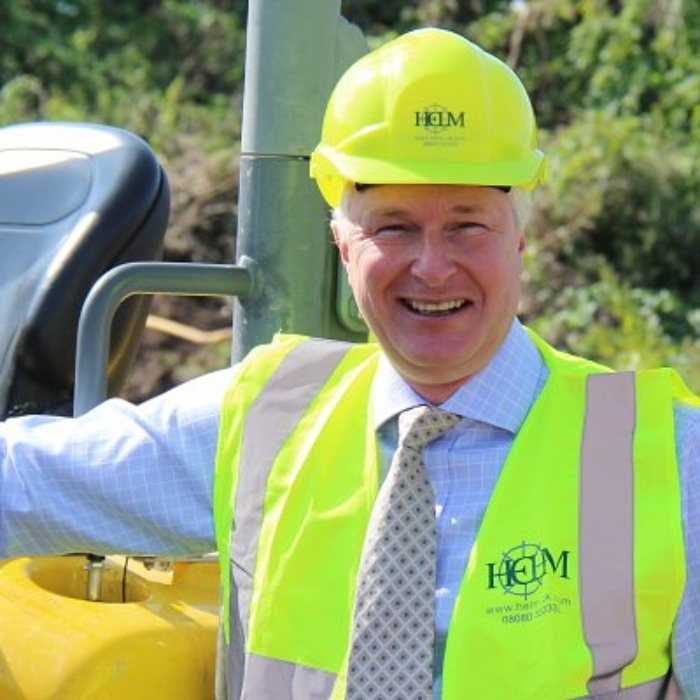A Bristol-based building company is reaping the dividends of its own training programme as the UK construction sector struggles to cope with an on-site skills shortage.
Helm Construction – which mapped out an ambitious expansion plan during the dark days of the downturn – says the industry would be better placed to cope with the recovery if it had adopted similarly robust long-term training initiatives.
Chief executive officer Gary Sheppard likened the fast-recovering construction sector to a ‘sleeping giant’ yet to find its feet.
He said: “We are in the initial stages of the biggest building boom since the 1970s but the recession has left many firms struggling to find the highly skilled workforce they need to deliver on site, on time.”
Construction sector commentators are predicting the biggest boom will be in the South West with more than 30,000 jobs created along with tens of thousands of new homes.
The recovery encompasses nationally significant building projects such as Hinkley Point to five regional housing zones on brownfield sites which are tipped to deliver 11,000 new homes.
Gary Sheppard said: “While bigger companies laid off workers and shut down their apprentice training schemes we expanded ours to ensure we were ready when the economy finally picked up.
“Now it’s booming again the regional construction sector has a whole lot of ground to make up expanding its workforce and skills base in order to meet the avalanche of new building over the next few years.”
Bristol-based Helm Construction is already making plans to double its workforce by 2017/2018 to maintain present tracections.
Gary Sheppard said: “Looking bck, nobody could have been in any doubt as to the Government’s determination to kick-start the economy based on the widespread recovery of the construction sector.
“Now the programmes which they have been talking up for so long are finally coming to fruition we are seeing more buildings going up, more machinery on sites and more boots on the ground.”
Locally, demand is set to rise even further as the Government has selected a number of brownfield sites in the West as housing zones.
Gary Sheppard said: “The five sites in Weston-super-Mare, South Bristol, Gloucester city centre, Ashchurch in Tewkesbury and Foxhill in Bath will be fast tracked as housing zones, which will enable developers to borrow up to £200 million from the Public Works Loan Board to ensure infrastructure issues can be tackled head on.
“’Housing zone status will make it quicker and easier to build homes on brownfield land and reduce to some extent the demands on greenfield sites.”
Urban Regeneration specialists Helm Construction is already active on several smaller Brownfield sites in Bristol, tackling some of the city’s most challenging development projects.
Gary Sheppard continued: “The wider recovery means work will be underway on a number of key sites which will stimulate demand for construction crews, materials and machinery.
“The fact the apprentices we took on during the recession are now moving up through the ranks to take up new positions as skilled tradesmen, supervisors and site managers means we aren’t going to be left behind as the big companies look to re-build their own workforces to cope with this vastly increased demand.”
He concluded: “Much of the construction industry is facing shortages of skilled labour – including bricklayers, plumbers, plasterers, carpenters and electricians. Many will have to factor in a significant time-lag before they can attract, train and deploy the skilled workforce necessary to cope with this demand.”



















